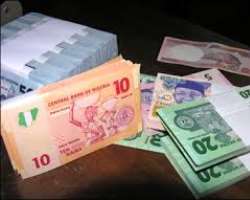CBN Monetary Policy Committee: Shifting Hallowed Grounds

The monetary policy committee of the Central Bank of Nigeria held its third meeting of the year between 23rd and 24th May, 2016 and all committee members unanimously voted to retain rates. The MPR was retained at 12% with an asymmetric corridor of +2%/-5%, and the harmonized CRR remains at 22.5%. The members of the committee also appear to be shifting grounds as they voted to adopt a flexible exchange rate system, which would mean relaxing their stern stance on foreign exchange administrative measures that drove foreign currency illiquidity and the loss of foreign investment over the past year.
With little clarity on this end, we believe a likely devaluation of the Naira would be the first step towards adopting market friendly pricing in the Forex Market. However, we note with major concern that an equal mention of a small window for critical transactions would mean that there are still grey areas ahead.
It is evident that underlying weakness in macroeconomic indicators, collapsed into a terminology known as stagflation (muted growth in GDP and a spiral in inflation), which have served as major Issues of contention and dilemma for the policy making body have remain unchanged.
However, we believe that recent data from the National Bureau of Statistics which suggests that key economic indicators had worsened are clearly responsible for the new measures. Top among this remains a rapid slowdown in GDP growth, whose outcome was a contraction to a twelve year low of -0.36% in the first quarter of 2016 (vs Q1 2015: 5.62%), a 13.7% rise in inflation in April (March: 12.8%) to the highest since 2010 and soaring unemployment rates which stood at 12.1% for Q1 2016 (Q4 2015: 10.4%).
In view of the likely changes to foreign exchange management, we note the following:
- On the suggestion of a dual market for perceived ‘critical transactions’, we believe that corrupt tendencies through round tripping and arbitrage opportunities remains rife. And selective allocation of Forex of any sort to any segment violates the tenets of free market.
- The adoption of a market friendly rate also serves to ease speculative demand, ensure that speculative holders dispose their foreign currency holdings to boost supply and would lay solid foundations for the re-entry of foreign investors and re-admission of Nigeria’s capital markets to international indices (JP GBI-EM index, Barclays MSCI Index, etc). A continuous signal in this direction is needed to calm nerves and limit currency risks to foreign investments.
- For equities, the changes should be perceived as positive. One, attractive stocks would benefit as investors with higher risk appetite redirect investments into equities. Two, in a more optimistic light, it would facilitate the return of foreign investors whose flight had pummeled market returns. However, clarity on the direction of foreign exchange policy would serve as cue that would guide investor decisions.
On interest rates, below are key considerations:
- We believe the maintenance of interest rates at present levels goes to support lower borrowing rates as the FG’s fiscal expansion takes foot. However, this is at a cost to private investment in fixed income securities due to negative real returns.
- We hold the view that raising rates would not help rein in inflation, as inflationary factors have been more of structural factors than of excess liquidity levels. Inflation has been largely stoked by recurring shortage in fuel supply, food shortages, high import costs pass-through and the hike in electricity rates. While the standard dictate would be to hike interest rates to lessen inflationary tendencies and also factor in sure tendencies of future spike in inflation, the CBN finally discards seeing current inflation as a monetary phenomenon by holding rates. With this move, it has made known its intention to favour policy choices that will facilitate a return to growth.
Without a timeline for these changes, we expect that the CBN will move swiftly (outside the MPC meeting) to set a good pace for the second half of the year (H2:2016). On the interim, the economy is at the precipice of a recession as we see a further contraction in GDP growth in Q2 2016. We believe the economy can only weather the storm if CBN’s monetary policy choices are supportive of the real sector and FG’s expansionary spending.
